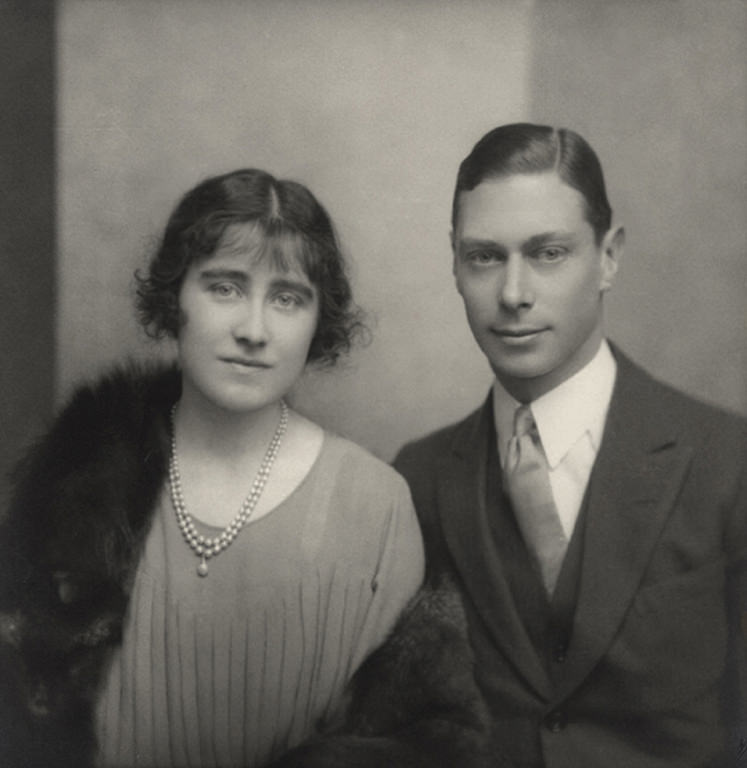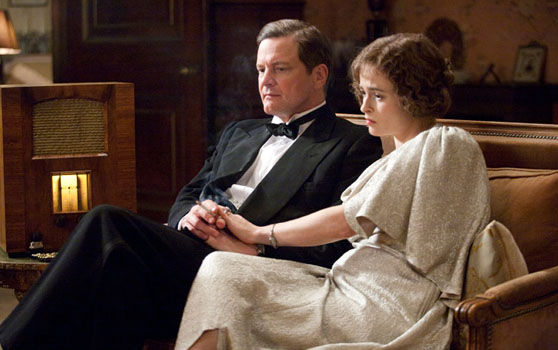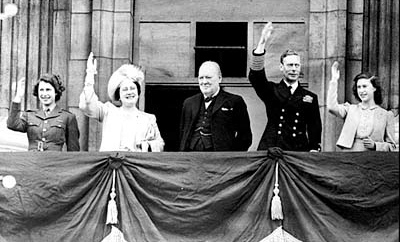There is nothing the Academy of Motion Picture Arts and Sciences loves more than movies about people with physical or mental disabilities (or addictions). There have been a host of such Oscar-winning best-pictures, from The Lost Weekend (1945) to A Beautiful Mind (2001), and best-acting awards, from Jane Wyman in Johnny Belinda (1948) to Angelina Jolie in Girl, Interrupted (1999).
If the afflicted protagonist also happens to be royal—as in The Madness of King George (1994)—so much the better, for a suffering crowned head bestows an extra touch of class on Hollywood’s uplifting formula of brave triumph over cruel adversity. Not surprisingly, this year’s leading contender for Oscar glory is Tom Hooper’s The King’s Speech, which was nominated Tuesday for a dozen Academy Awards, more than any other film, including best picture, director, original screenplay, cinematography, editing, art direction, costume design, original score, sound mixing, and acting accolades for its three principal players.
This entertaining if only fitfully authentic docudrama focuses on the struggle of King George VI (Colin Firth) to correct his debilitating stammer with the help of an Australian speech therapist, Lionel Logue (Geoffrey Rush), climactically for a crucial radio address to the nation and empire when Britain declared war on Germany in September 1939. The fifty-year-old Firth, who has been garnering rave reviews and prizes for this role (including Golden Globe and Critics’ Choice awards and an Oscar nomination for best actor) may no longer be the heartthrob Mr. Darcy, but he is still far too robust to evoke the slightly built, bony-faced nervous-wreck George.
However, it was inspired casting to give the part of his plump, petite no-necked consort, Elizabeth—the future Queen Mother—to the similarly configured Helena Bonham Carter, and to dress her in hilariously accurate outfits (by Jenny Beavan) of just the confectionery sort that caused mocking Mitfords and gleeful Guinnesses to dub her late majesty “the Cake.” As was also the case in real life, Bonham Carter’s sparkly queen outshines Firth’s morose king. He gives a nearly one-note performance, a rare departure from his squelched-rage mode being the tender scene in which he tells a charming bedtime story to the prepubescent Princesses Elizabeth (the present queen) and Margaret. Rush, who has an easier time of it because he portrays someone no one knows, manages to look duly concerned and blinks a great deal, but both he and Firth are easily outclassed by the quietly dazzling Bonham Carter.
Especially good as George VI’s elder brother, Edward VIII—later the Duke of Windsor—is Guy Pearce, who perfectly captures his character’s heedless selfishness and slavish devotion to Wallis Simpson (Eve Best, who resembles the hearty Angelica Houston more than the brittle little American double-divorcee who inspired Edward to abdicate.) This racy sub-plot provides one of the movie’s few divergences from its excessively narrow focus on the one-on-one relationship between Logue and his patient, which makes The King’s Speech at times seem more like a stage play than a historical film.
The King’s Speech doesn’t dwell on George’s limited intellectual capacities, but many who dealt first-hand with him did. Lloyd George considered him “a nitwit,” the French premier Edouard Daladier opted for “moron,” and a postwar British ambassador to France, Oliver Harvey, deemed the man he represented “a fundamentally weak character and certainly a stupid one.”
Though The King’s Speech posits the title character’s verbal handicap as the source of his irascible behavior, some who knew him thought his nasty temper and tendency to hysteria were more free-ranging. Lord Mountbatten’s daughter Pamela dreaded dining with the king because he could become “extremely annoyed about some quite trivial thing and there would be a violent explosion.”
George’s hairtrigger tantrums—termed “gnashes” within the palace—were patiently endured by his wife, whose lifelong skill at ignoring any unpleasantness earned her the sobriquet of “the imperial ostrich.” Notably absent from The King’s Speech is dramatization of the historian John Grigg’s report that there were times when George “became so out of control that he actually struck his wife.”
David Seidler, who wrote the screenplay, clearly did his homework, and the script is rich with dialogue uttered by the royal prototypes. Though he takes artistic license with certain facts, most such liberties are acceptable. For example, a scene where the bullying George V hectors his tongue-tied second son about the proper use of microphones may be imaginary but makes a valid biographical point.
Much of the action (such as it is) takes place in a set designed by Judy Farr to represent Logue’s Harley Street consultation room, a cavernous, fancifully ornamented space recalling an abandoned Aesthetic Movement artist’s studio of a half-century earlier, suggesting remains of the high bohemian London milieu depicted so brilliantly in Mike Leigh’s Gilbert and Sullivan biopic, Topsy Turvy (1999). Adding to the aura of faded splendor is Danny Cohen’s low-wattage cinematography, which makes everything look as if it had been steeped in strong tea.
Advertisement

Prince Albert, the future George VI, with Lady Elizabeth Bowes-Lyon, the future Queen Elizabeth, 1923 (photograph by E.O. Hoppé)
Though Seidler gets most small things right, several big things seem very wrong indeed. George VI (born Prince Albert of York) was called Bertie in family circles, but he most certainly was not addressed that way by Logue, as the film purports. A stickler for protocol, the hidebound king never would have countenanced such lèse-majesté.
And when Firth’s character watches a newsreel of Hitler ranting at a rally and avers that he cannot understand the dictator, credibility strains. George’s parents were both of Teutonic descent, his older brother spoke fluent German, and he also must have known the family’s Muttersprache despite any expedient contrary pretense.
This glaring lapse highlights Seidler’s tiptoeing around George VI and Elizabeth’s personal politics. Though The King’s Speech rightly depicts Edward VIII and Wallis Simpson as Nazi sympathizers, it ignores the extent to which his successor and his sister-in-law were appeasers. Upon Neville Chamberlain’s return from his infamous capitulation to Hitler at Munich in 1938, which ratified the dismemberment of Czechoslovakia, the prime minister made a Buckingham Palace balcony appearance with the royal pair.
Several other historians have agreed with Stephen Runciman, who called that implicit public endorsement of appeasement “the biggest constitutional blunder that has been made by any sovereign this century.” And when Chamberlain was forced to resign after the Nazi onslaught of May 1940, the king and queen still preferred the appeaser Lord Halifax to Churchill as his replacement.
They distrusted Churchill because he sided with Edward during the abdication crisis, and warmed to him only slowly, won over by his adoration of the monarchy and shameless flattery. In The King’s Speech we find Churchill (played by a rumbling Timothy Spall) spouting off about the need for a wartime king who can speak for Britain and reassuring George that he himself had overcome a speech impediment.
Yet it was Churchill’s genius for patriotic oratory that played a pivotal role in his country’s desperate battle for survival against all odds, as Max Hastings reminds us in his stirring Winston’s War: Churchill, 1940–1945. Churchill’s lisp may not have been as inhibiting as George’s stammer, but the prime minister’s galvanizing broadcasts, not the king’s halting efforts, were what carried the day. As Piers Brendon and Philip Whitehead write, it was that uncommon commoner, rather than his sovereign who “became the embodiment of Britain’s fighting spirit.”





